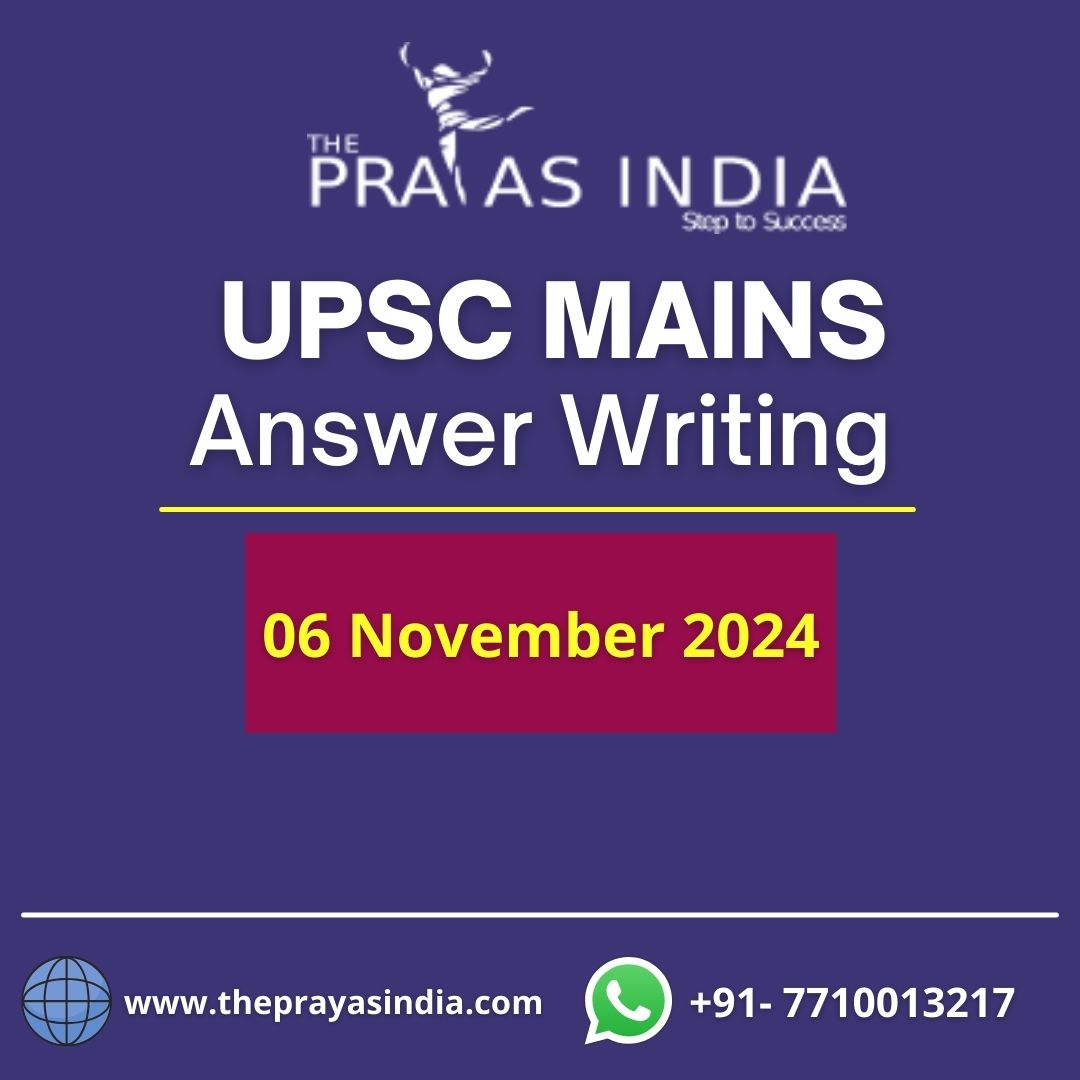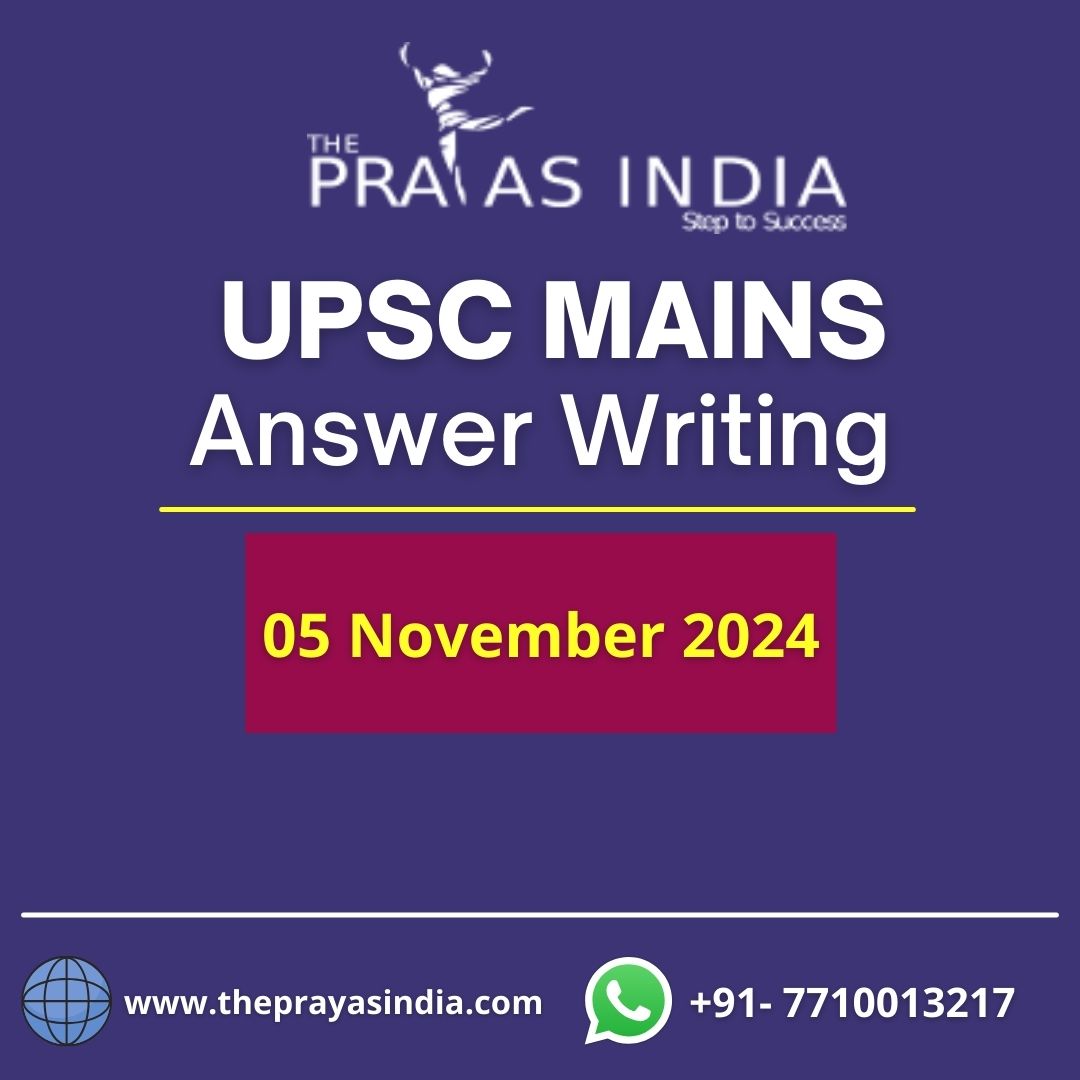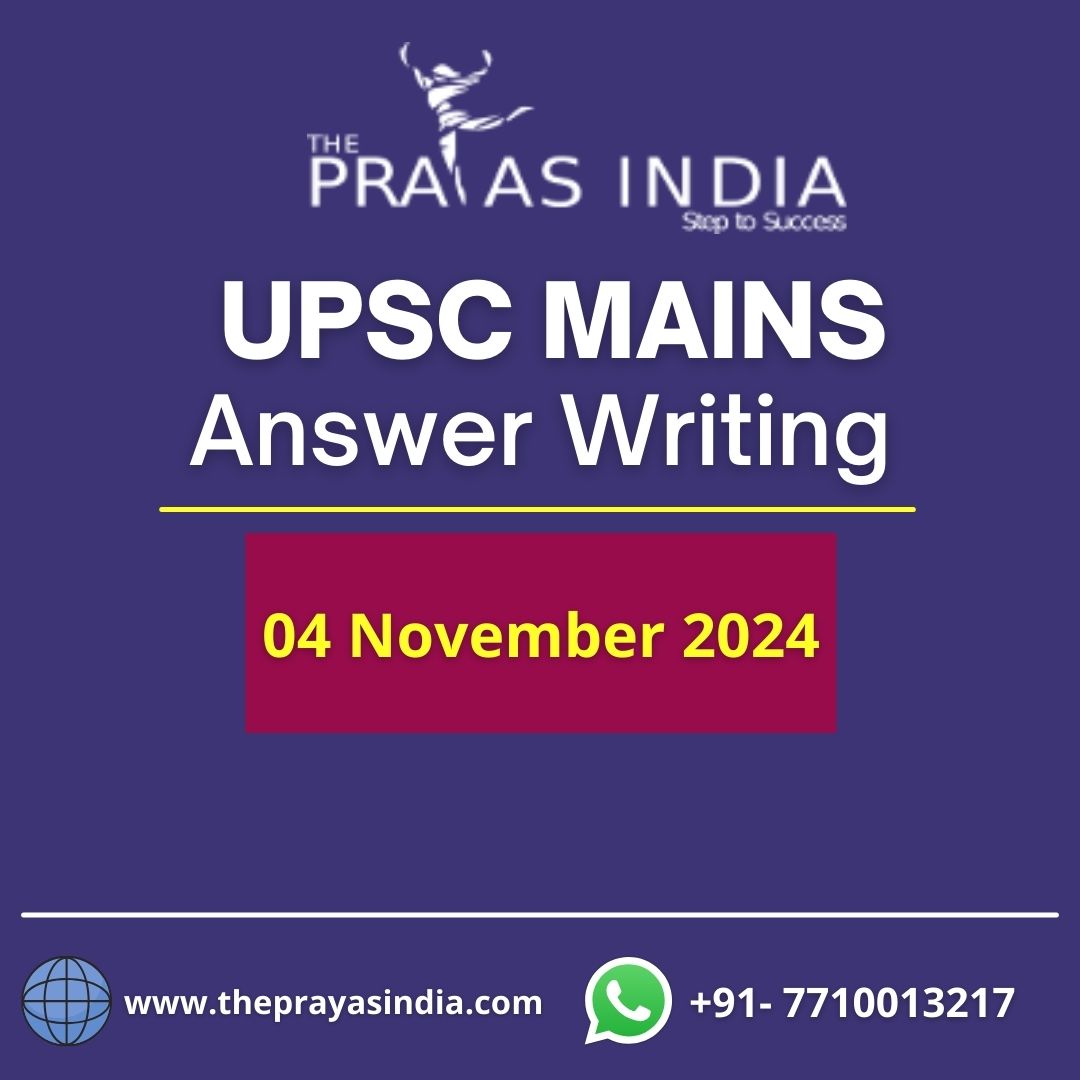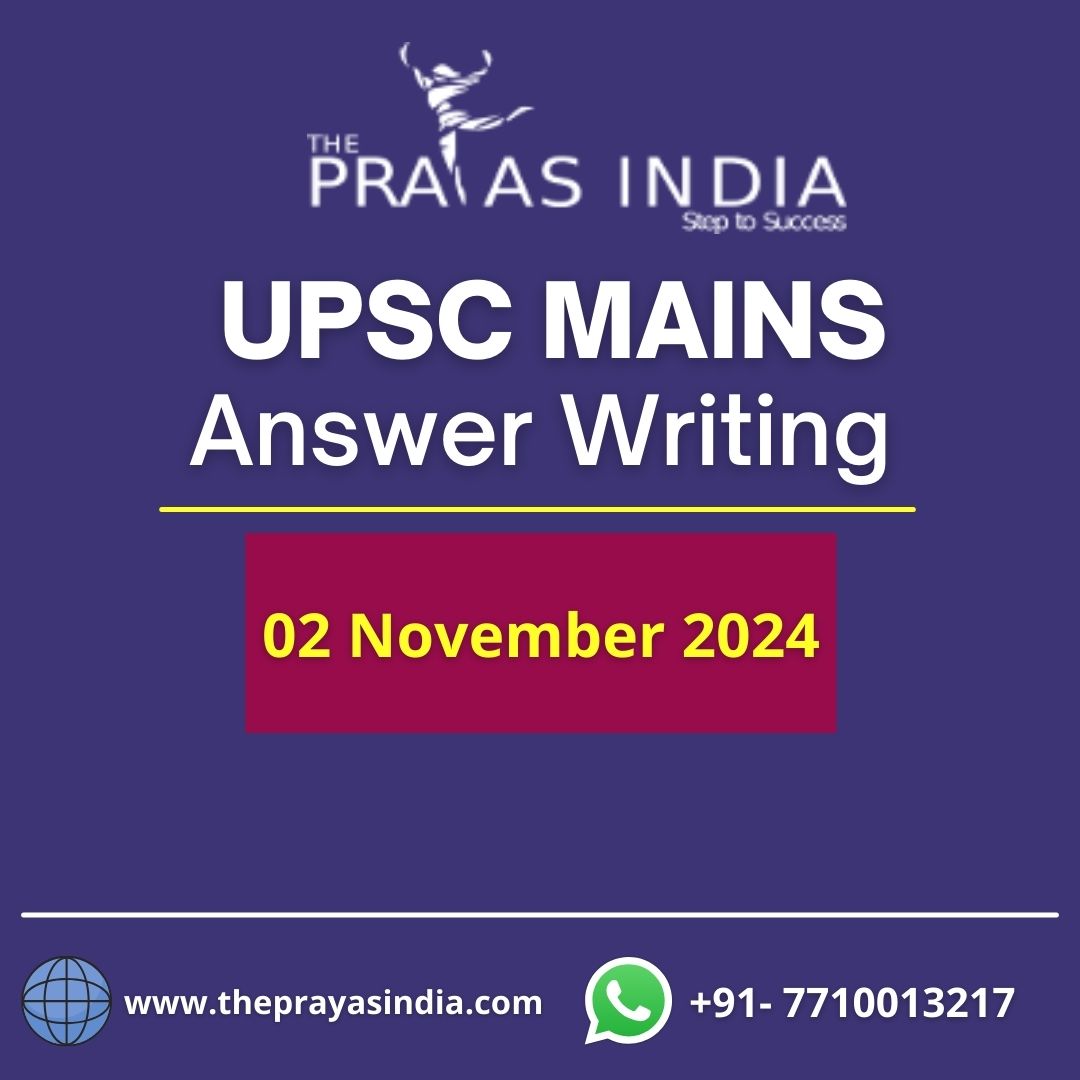MAINS QUESTIONS
Q1. The League’s unwavering support for an independent Muslim state led to a series of incremental concessions that eventually led to the partition being approved in 1947. Elucidate. (250 words)
Paper & Topic: GS I – National Movement
Introduction:
- The rise of Indian nationalism in the 19th century was primarily anti-colonial and anti-British, without any religious fervour, notwithstanding the dominance of the Hindu voice in the all-India Congress. The anti-colonial nationalist movement that grew among Hindus, Muslims, Sikhs, and all other communities was strengthened by anti-colonialism and anti-British sentiments.
- The division brought on by social tensions was ultimately caused by the British policy of “Divide and Rule,” which over time greatly divided society.
Body:
The chain of circumstances leading to partition:
- Cripps Mission: In 1942, the Cripps Mission contributed to proving the legitimacy of regions with a high Muslim population.
- During his discussions with Jinnah in 1944, Gandhiji went a step further and concurred that provinces with a majority of Muslims should be given the freedom to make their own decisions.
- Cabinet Mission Plan: In June 1946, Congress gave its blessing to the creation of a Constituent Assembly by the provinces with a majority of Muslims (Groups B and C of the Cabinet Mission Plan). However, it rejected forced grouping and upheld the right of the NWFP and Assam to opt out if they so desired.
- Nehru declared that he would accept the Federal Court’s decision at the end of the year regarding the necessity of grouping.
- In December 1946, the British Cabinet came to the conclusion that grouping was required, and the Congress made no objections.
- CWC decision: At the beginning of March 1947, the Congress Working Committee passed a resolution declaring that if the country were to be partitioned, Bengal and Punjab would need to be split.
- In June 1947, when Congress agreed to adopt Partition under the Third June Plan, it ultimately conceded to the League’s demands.
Analysis:
- The failure of the Congress to engage the Muslim masses in the national struggle and quell the raging waves of Muslim communalism, which had been hammering particularly since 1937 with escalating severity, was the cause of what Nehru, Patel, and Gandhiji were merely accepting as inevitable in 1947.
- When the League won 90% of the seats designated for Muslims in the 1946 elections, this weakness was starkly illustrated.
- Even though Jinnah’s side had already lost the war by the start of 1946, the actual conflict was not proclaimed until after it had been brutally fought in the streets of Calcutta, Rawalpindi, and the backstreets of Noakhali and Bihar.
- By June 1947, the Congress leadership had come to the conclusion that in order to stop the growth of Direct Action and racial unrest, an immediate shift in political dominance was required.
- The Interim Government collapsed into chaos, making Pakistan seem inevitable.
Conclusion:
- The acceptance of the immediate transfer of authority to two dominions depended on another factor. Because the provinces and princes were coerced and forced into joining one of the two dominions rather than given the choice to be independent, balkanization was avoided. This was a noteworthy accomplishment. The princely states would have been more detrimental to India’s unity than Pakistan.
- Due to its unwavering support for an independent Muslim state, the League made a series of progressively smaller concessions, with accepting Partition in 1947 serving as the last one.
Q2. A series of gradual compromises were reached as a result of the League’s staunch support for a distinct, independent Muslim state, which culminated in 1947 with the acceptance of Partition. Elucidate. (250 words)
Paper & Topic: GS I – National Movement
Introduction:
- Despite the dominance of the Hindu voice in the all-India Congress, the emergence of Indian nationalism in the 19th century was fundamentally anti-colonial and anti-British, without any religious fervour. Anti-colonialism and anti-British sentiments united the anti-colonial nationalist fervour that swept over Hindus, Muslims, Sikhs, and all other communities.
- Community sentiments finally sparked the separation as a result of the British strategy of “Divide and Rule,” which over time greatly rifted society.
Body:
The series of events that led to partition:
- In 1942, the Cripps Mission assisted nations with sizable Muslim populations in gaining recognition for their independence.
- Gandhiji went a step further and agreed that provinces with a majority of Muslims should be given the chance to make their own judgments during his conversations with Jinnah in 1944.
- Cabinet Mission Plan: In June 1946, Congress approved the establishment of a Constituent Assembly by the provinces having a majority of Muslims (Groups B and C of the Cabinet Mission Plan). However, it rejected forced grouping and defended the right of the NWFP and Assam to reject it if they so desired.
- At the end of the year, Nehru did state that he would accept the Federal Court’s ruling on the issue of whether grouping was necessary or not.
- The Congress did not object to the British Cabinet’s decision that grouping was necessary in December 1946.
- CWC decision: At the start of March 1947, the Congress Working Committee adopted a resolution stating that Bengal and Punjab would have to be divided if the country were to be partitioned.
- Congress had finally given in to the League’s demands when it decided to accept Partition under the Third June Plan in June 1947.
Analysis:
- What Nehru, Patel, and Gandhiji were silently accepting as inevitable in 1947 was caused by the Congress’s failure to mobilise the Muslim masses in the national struggle and quell the boiling waves of Muslim communalism, which had been battering particularly since 1937 with increasing intensity.
- In the elections of 1946, the League gained 90% of the seats reserved for Muslims, amply exposing this deficiency.
- The real battle was not announced until after it had been brutally fought in the streets of Calcutta, Rawalpindi, and the backstreets of Noakhali and Bihar, even though Jinnah’s side had already lost the war by the beginning of 1946.
- By June 1947, the Congress leadership had come to the conclusion that an immediate change in political dominance was necessary to halt the rise of Direct Action and racial strife.
- As the Interim Government practically fell apart, Pakistan seemed to be an unavoidable fact of life.
Conclusion:
- Another component has to be present for approval to the immediate transfer of sovereignty to two dominions. Balkanization was ruled out since the provinces and princes were compelled to join one of the two dominions rather than being given the option to be independent. This was a significant achievement. More than Pakistan, the princely kingdoms would have been harmful to the unity of India.
- The League made a series of progressively smaller sacrifices because of its unrelenting support for an independent Muslim state, with accepting Partition in 1947 serving as the ultimate one.




